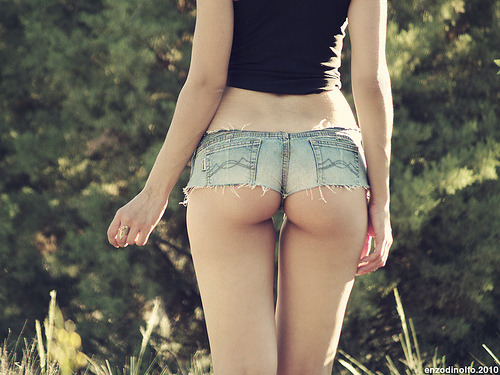Talk about fashion with a long lead time: Tuesday, May 20, marked the 141st birthday of the Levi's 501 jean.
As CEO Chip Bergh remarked at Fortune's Brainstorm Green conference in Laguna Niguel, Calif., "We are the ultimate in sustainable apparel. If you buy (Levi's), they will last a lot longer than most people's waistlines will." Levi's are also, Bergh said, the No. 1 brand in secondhand apparel stores.
At a time when throwaway fashion remains dominant, Levi Strauss & Co. is an anomaly. Not only are its clothes known for their durability and longevity, but the company is far ahead of the sustainability curve, especially for an apparel company.
One of the most innovative ideas Bergh discussed was part of the company's Wellthread initiative, a small Dockers collection that is, in his words, "sustainable in every facet of the world," which means both economically and socially.
Not only are the clothes much greener -- made with much less energy and water out of fabrics that are easier to recycle -- but they are manufactured in plants where workers' well-being is measured and meets high standards. For now, it's just an experiment, and a "premium-priced" one at that, available in Europe (and online in the U.S.), but Bergh says he is "encouraged" by early results.
Bergh also had some surprising things to say about how to reduce water use in his business. Only half of water use happens in the jean production process, which means that the other half happens at home, when the customer washes his jeans repeatedly in order to end up with the right color and fit. Levi's is producing a line of products called Waterless, which you can request in stores.
And if you want to do your part for sustainability, Bergh has another idea: Stop washing your jeans.
"These jeans have yet to see a washing machine," he said of the dark blue pair he wore onstage, which he's owned for an entire year. "I have yet to get a skin disease."
Still, one has to hope those jeans will be washed before they celebrate their second birthday -- let alone their 141st.
As CEO Chip Bergh remarked at Fortune's Brainstorm Green conference in Laguna Niguel, Calif., "We are the ultimate in sustainable apparel. If you buy (Levi's), they will last a lot longer than most people's waistlines will." Levi's are also, Bergh said, the No. 1 brand in secondhand apparel stores.
At a time when throwaway fashion remains dominant, Levi Strauss & Co. is an anomaly. Not only are its clothes known for their durability and longevity, but the company is far ahead of the sustainability curve, especially for an apparel company.
One of the most innovative ideas Bergh discussed was part of the company's Wellthread initiative, a small Dockers collection that is, in his words, "sustainable in every facet of the world," which means both economically and socially.
Not only are the clothes much greener -- made with much less energy and water out of fabrics that are easier to recycle -- but they are manufactured in plants where workers' well-being is measured and meets high standards. For now, it's just an experiment, and a "premium-priced" one at that, available in Europe (and online in the U.S.), but Bergh says he is "encouraged" by early results.
Bergh also had some surprising things to say about how to reduce water use in his business. Only half of water use happens in the jean production process, which means that the other half happens at home, when the customer washes his jeans repeatedly in order to end up with the right color and fit. Levi's is producing a line of products called Waterless, which you can request in stores.
And if you want to do your part for sustainability, Bergh has another idea: Stop washing your jeans.
"These jeans have yet to see a washing machine," he said of the dark blue pair he wore onstage, which he's owned for an entire year. "I have yet to get a skin disease."
Still, one has to hope those jeans will be washed before they celebrate their second birthday -- let alone their 141st.




 hno:
hno:















